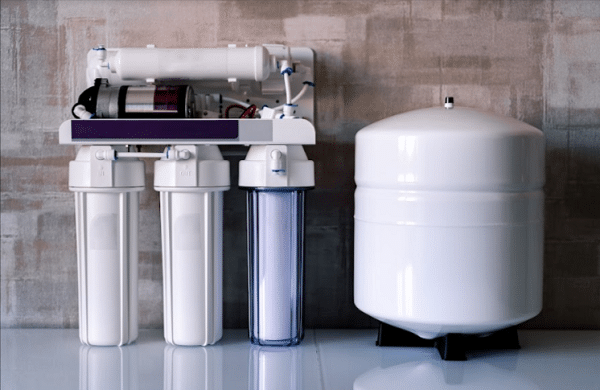
Keeping a water tank at home is something so many homeowners might now have been thinking of doing. While not a necessity, it’s still nice to have, given the multitude of benefits a water tank brings. There are the environmental benefits of making the most out of rainwater. As to the financial advantages, you may be able to save on your water expenses when you’re using stored water. Then, if you happen to live in a place where water problems have become quite prevalent, it also brings convenience, so you won’t ever have to worry about running out of supply.
Storing water at home isn’t actually as simple as you think it is. There are so many things you have to consider, given how there’s also a multitude of options for water tanks to choose from. To give you a guide, this article enumerates some of the most common types of water tanks used both for residential and industrial purposes.
-
Vertical Rainwater Tanks
Vertical rainwater tanks are designed both for commercial and residential purposes. You’re certain to find the most approximate size you need, as vertical tanks can come in an average of over 40 different sizes, with the smallest being 50 liters and the biggest at 90,000 liters.
If you intend to use the vertical water tank for storing rainwater, then you’ll also have to supplement with a water filtration system, such as reverse osmosis. With one, you have that assurance that the rainwater you collected can be further processed into potable water.
Vertical rainwater tanks can be used for a variety of purposes, like:
- Agricultural sprayers for grains
- Greywater systems for flushing toilets
- Water for dairy wash in barns
- Pressure washers for households
Underground Fiberglass Tanks
As its name implies, these types of tanks are positioned underground and are made out of fiberglass. These can easily be one of the most durable types of water tanks, as fiberglass is a non-corrosive material. They’re also very versatile, so their use can span a wide variety, even for commercial functions.
Underground water tanks are great to use, if you’re looking for a space saving option, more suited to smaller blocks and areas. They’re also more discreet, so you won’t have an unsightly water tank out on display, which may affect your home’s façade.
Underground fiberglass tanks are best used for storing stormwater, potable water, and even wastewater. They can be more expensive, but their durability can’t also be rivaled.
- Onion Tanks
Onion water tanks are more of a portable and temporary nature, mostly used for storing water quickly during emergency events. These tanks are easy to move around and set up, so you can use them only when necessary. Onion tanks are also built with a self-rising feature, with fittings that are easy to access.
- Bladder Tanks
Bladder tanks are also referred to as pillow tanks. These are also portable in nature, such that they can easily be deployed on a field when needed. They’re collapsible and are made out of rubber or a durable fabric.
Bladder tanks can be used for any purpose of a temporary nature. They can include storing rainwater, grey water, drinking water, and non-potable water. Their average size can be anywhere between 25 to 25,000 gallons.
- Insulated Water Tanks
Insulated water tanks are used when temperature control and regulation are very important. These are used so as to prevent the freezing of liquids. Moreover, these types of tanks can also be used to prevent overheating.
Insulated water tanks have an insulation foam that covers them. and can be as big 40,000 liters.
- Carbon Welded Steel Tanks
Water storage tanks that are made out of carbon welded steel are more durable and stronger. These types of tanks are very versatile, and can be used even for construction purposes. Many of those who choose carbon welded steel tanks do so for functions like fire prevention, storing waste water, and processing potable water.
Final Thoughts
If you’re still trying to decide on the best type of water tank to use, then the list above should give you a good start in your selection process. These aren’t all, however, so you can also ask around your local supplier or home depot warehouse. Ultimately, the decision as to the type of water tank you’ll be using rests upon factors like your budget, the size you need, and even your personal preferences.
Each type has its own pros and cons, and it’s up to you to weigh all those out. By doing so, you can be certain that you’ll wind up with the best type of water tank that you need in your home.